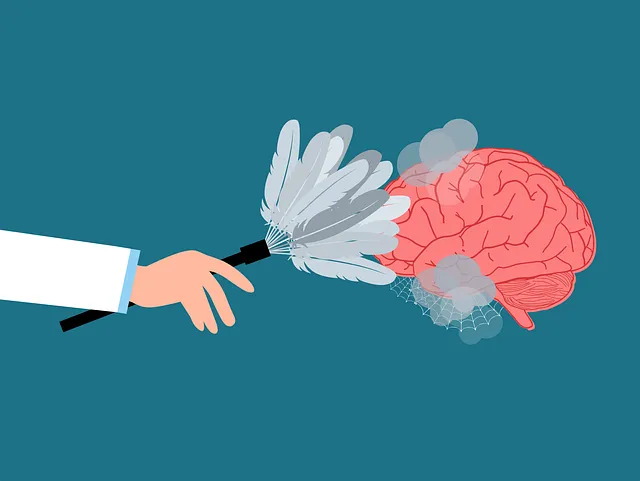Boulder Kaiser Permanente behavioral health services reviews underscore a holistic approach to substance abuse risk reduction, integrating mental wellness practices into community initiatives. They offer diverse programs from cognitive-behavioral therapy and self-esteem workshops to evidence-based strategies for comprehensive treatment, empowering individuals with better coping mechanisms and reducing relapse risks. Effective prevention involves promoting self-care routines, mental health awareness, and community support, while recovery relies on personalized tailored treatment plans, robust support systems, and mood management techniques highlighted in the reviews of Boulder Kaiser Permanente behavioral health services.
In a world where substance abuse poses significant risks, understanding and addressing this complex issue is paramount. This article explores comprehensive risk reduction strategies tailored through Boulder Kaiser Permanente behavioral health services reviews. We delve into the root causes of substance abuse, highlighting the crucial role of community support and individual interventions in prevention. Additionally, we examine effective treatments and recovery systems, offering insights into how Boulder Kaiser Permanente’s behavioral health services contribute to a healthier, safer community.
- Understanding Substance Abuse and Its Risks
- The Role of Kaiser Permanente Behavioral Health Services in Risk Reduction
- Strategies for Individual and Community Prevention
- Effective Interventions and Support Systems for Recovery
Understanding Substance Abuse and Its Risks

Substance abuse is a complex issue that involves the excessive or unauthorized use of substances like drugs and alcohol, leading to adverse effects on health, relationships, and daily functioning. It’s crucial to understand this behavior as a potential symptom of underlying mental health issues, such as depression or anxiety. In Boulder, Kaiser Permanente behavioral health services reviews highlight the importance of comprehensive treatment approaches that address both the addiction and its root causes.
Risk management planning for mental health professionals plays a vital role in mitigating the risks associated with substance abuse. This includes incorporating strategies like Social Skills Training to enhance coping mechanisms and build healthy relationships. Additionally, fostering inner strength development through mindfulness practices and therapy can empower individuals to make better choices and avoid substance-related temptations. By integrating these evidence-based methods, healthcare providers can effectively support those struggling with addiction while preventing further harm.
The Role of Kaiser Permanente Behavioral Health Services in Risk Reduction

Kaiser Permanente Behavioral Health Services plays a pivotal role in risk reduction strategies for substance abuse in Boulder and beyond. With a focus on holistic care, their services extend far beyond traditional treatment models, addressing the complex interplay between mental health and addiction. The organization offers a range of programs tailored to individual needs, from cognitive-behavioral therapy and medication-assisted treatments to specialized workshops centered around self-esteem improvement and stress management.
One notable aspect of Kaiser Permanente’s approach is their commitment to fostering mental wellness through evidence-based practices. By integrating these initiatives into the community, they create a supportive environment that encourages long-term recovery. Positive reviews from those who have benefited from their services highlight the effective and compassionate care provided by this Boulder Kaiser Permanente behavioral health services entity, underscoring its dedication to transforming lives through comprehensive risk reduction strategies.
Strategies for Individual and Community Prevention

Individual prevention strategies play a pivotal role in combating substance abuse. Encouraging self-care routine development for better mental health is a powerful tool. Incorporating activities that promote relaxation, such as mindfulness practices and physical exercise, can effectively reduce stress and anxiety relief, which are significant risk factors for substance misuse. Mental health awareness campaigns and educational programs aimed at individuals help them recognize signs of addiction early on, allowing for timely intervention.
Community-level initiatives complement individual efforts. Boulder Kaiser Permanente behavioral health services reviews highlight successful community programs that foster resilience and well-being. These include peer support groups, community outreach programs, and substance abuse prevention workshops. By promoting open dialogue about mental health and reducing the stigma associated with seeking help, communities can create an environment where individuals are more inclined to make healthier choices. Such collective efforts ensure a comprehensive approach to risk reduction, targeting both personal and communal aspects of substance abuse prevention.
Effective Interventions and Support Systems for Recovery

Effective interventions and support systems play a pivotal role in substance abuse recovery. One prominent approach, backed by Boulder Kaiser Permanente behavioral health services reviews, involves comprehensive assessment and tailored treatment plans. By conducting thorough risk assessments, mental health professionals can identify vulnerabilities and design strategies to mitigate risks. This personalized approach ensures that each individual receives the most suitable care for their unique challenges.
In addition to these structured interventions, building robust support systems is crucial. Peer groups, family therapy sessions, and burnout prevention programs are effective tools in fostering recovery. These systems provide a network of encouragement and accountability, which is essential for maintaining sobriety. Mood management techniques, often integrated into treatment plans, empower individuals to regulate their emotional well-being, thereby reducing the risk of relapse.
Substance abuse poses significant risks, but with comprehensive strategies, these challenges can be mitigated. Boulder Kaiser Permanente behavioral health services reviews highlight their effective role in risk reduction through tailored interventions and community support systems. By combining individual prevention efforts with community engagement, we can foster a healthier environment, ultimately leading to better outcomes for those struggling with substance abuse. These strategies not only empower individuals but also strengthen communities, creating a network of support that promotes long-term recovery and reduces the devastating impacts of substance misuse.






